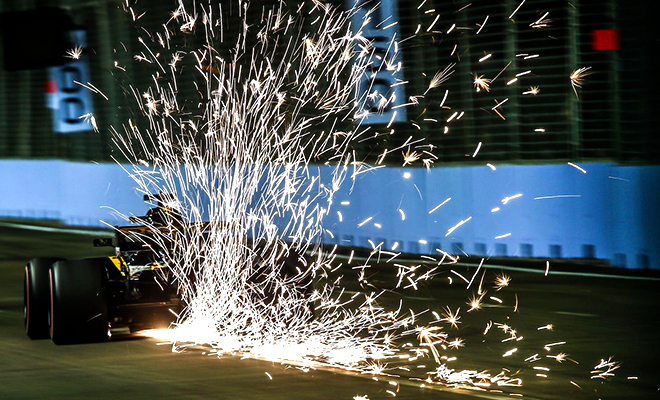In Formula 1, Nick Fry challenges the sport’s predictability, advocating for radical changes to enhance suspense. His insights reveal a deep passion for revitalizing F1’s competitive essence and fan engagement.
In the high-stakes world of Formula 1, where precision and reliability often dictate the podium’s occupants, Nick Fry, the former head of Honda F1 and Brawn GP, voices a provocative question: Are ‘radical solutions’ needed to inject suspense into F1 races? According to Fry, the crux of the issue lies in the sport’s predictability, stemming from the cars’ robust reliability and the teams’ meticulous operations.
“The teams are almost too good at what they do,” Fry stated, reminiscing about an era when a 20% dropout rate due to accidents or breakdowns was the norm—a stark contrast to today’s races, where the sight of a car stranded on the track side is a rarity. Fry points to the banned practice of refueling during races as an example of a rule that, while dangerous, added an element of unpredictability to the sport.
F1’s Quest for Unpredictability and Engagement
Despite Formula 1’s soaring success in recent years, partly fueled by its Netflix exposure, Fry argues that the sport needs more variability beyond just changing venues. With viewership, especially in the United States, on a decline, the challenge is to find ways to recapture the audience’s attention. The hope that competitors might challenge Red Bull and Max Verstappen’s dominance is palpable, but if that doesn’t materialize, alternative methods to maintain the sport’s appeal must be considered.
Fry proposes two avenues for making F1 more unpredictable: manipulating technical regulations to even the playing field and revising sporting regulations, such as race formats and pit stop strategies. However, history has shown that technical adjustments rarely achieve the desired effect, as top teams with more resources tend to find optimal solutions first.
F1 Seeks Thrills with Radical Ideas
One of Fry’s notable suggestions is the adoption of radical measures similar to the elimination-style qualifying format introduced—and swiftly abandoned—in 2016. This concept, initially floated by teams during the tumultuous negotiations of 2009, was aimed at making qualifications more engaging. Surprisingly, the idea originated from Red Bull’s marketing team and a member of the Honda team, debunking the belief that it was Bernie Ecclestone or Flavio Briatore’s brainchild.
To keep viewers on the edge of their seats, Fry believes Formula 1 needs to embrace even artificial means to ensure races are fraught with suspense. Drawing parallels with football, where the outcome can pivot in the final moments, he highlights the intrinsic excitement that comes from unpredictability. Formula 1’s struggle, however, lies in recreating the kind of uncertainty that weather conditions can introduce without resorting to contrived excitement.
Fry’s reflections underscore a vital aspect of the sport’s ongoing evolution: the quest to balance safety and precision with the unpredictable thrills that keep fans captivated. As Formula 1 navigates these waters, incorporating innovative ideas that maintain competitive integrity while enhancing viewer engagement will be crucial for its future.
Radical changes in F1. Radical changes in F1
- ReadMore>Mario Andretti: A Legend’s Tale of Triumph & Tragedy
- Following us on Facebook and Twitter.
